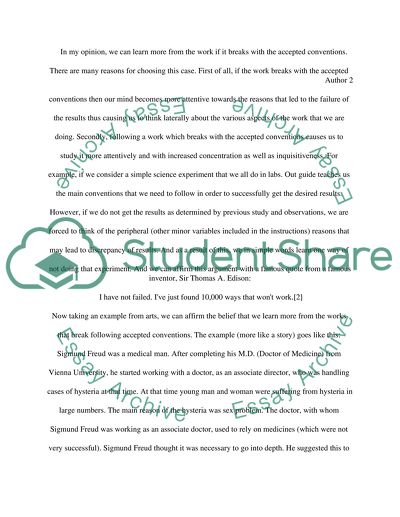Cite this document
(“Do we learn more from work that follows or breaks with accepted Essay”, n.d.)
Retrieved from https://studentshare.org/education/1503971-do-we-learn-more-from-work-that-follows-or-breaks-with-accepted-conventions
Retrieved from https://studentshare.org/education/1503971-do-we-learn-more-from-work-that-follows-or-breaks-with-accepted-conventions
(Do We Learn More from Work That Follows or Breaks With Accepted Essay)
https://studentshare.org/education/1503971-do-we-learn-more-from-work-that-follows-or-breaks-with-accepted-conventions.
https://studentshare.org/education/1503971-do-we-learn-more-from-work-that-follows-or-breaks-with-accepted-conventions.
“Do We Learn More from Work That Follows or Breaks With Accepted Essay”, n.d. https://studentshare.org/education/1503971-do-we-learn-more-from-work-that-follows-or-breaks-with-accepted-conventions.


